

Health & Nutrition Work & Enterprise Civil Society
From crisis to resilience: the journey towards recovery after COVID-19 in Eastern Africa
Whilst Eastern Africa was spared the brunt of COVID-19 cases in comparison to other regions in the Global South, its health systems still felt the strain of the fast-moving and unpredictable virus.
But it was the socioeconomic impacts that would reveal the greatest vulnerabilities, with existing income inequality and unemployment exacerbated by quarantine measures and a sudden drop in economic activity. The region’s growing youth population was hit particularly hard, with increased mental health needs, a rise in gender-based violence (GBV), and a loss of income-earning opportunities.
Last month, one of the Aga Khan Development Network‘s (AKDN) most transformative programmes in Eastern Africa came to an end. Launched in December 2020 across Kenya, Uganda, Tanzania and Mozambique, the programme supported more than 140,000 people to withstand the evolving health, social and economic impacts of the COVID-19 pandemic, reaching a further 10 million people through awareness campaigns.
With funding from the European Union (EU), the AKDN East Africa COVID-19 Response Programme was led by the Aga Khan Foundation (AKF) in partnership with Aga Khan Health Services (AKHS), Aga Khan University (AKU), and Triggerise.
To respond to the complex crisis, the programme took a multi-sectoral approach, focusing on three key areas: community resilience, health system strengthening, and youth health and livelihoods. AKF drew on the expertise of multiple partners to address these three pillars, including local civil society organisations (CSOs) and community-based savings groups (CBSGs) to reach the region’s most marginalised communities.
In this article, we explore highlights of each pillar and share the impact of this programme on individuals, communities, institutions, and systems in Eastern Africa.

Pillar one: Building community resilience
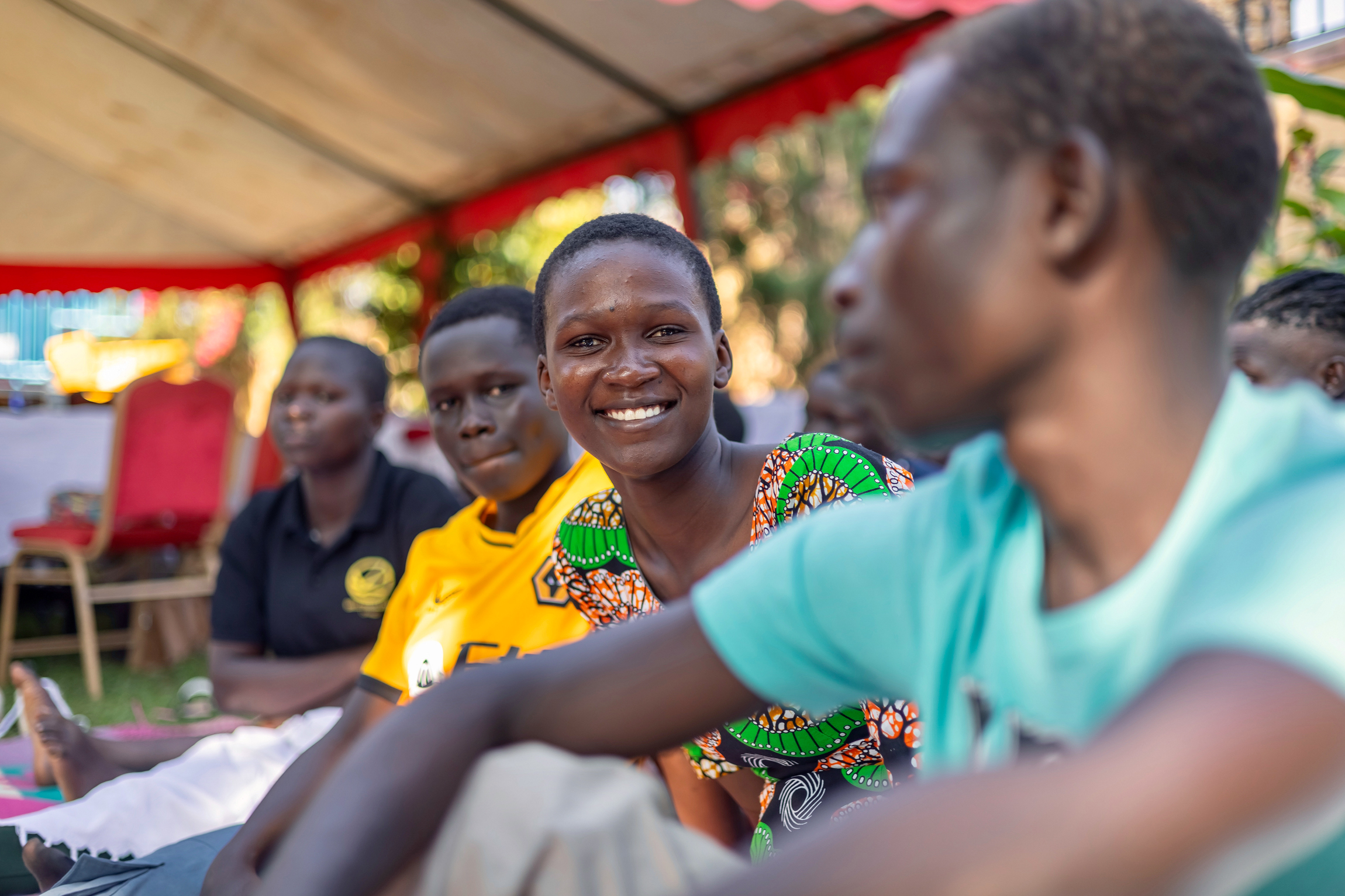
+€1 million
rapid response funds distributed

+10 million
People reached through media campaigns

248
CSO and CBSG partners
Rapid response funds
For marginalised groups in Eastern Africa, the shock of the pandemic weighed heavily on existing vulnerabilities. Through the response programme, AKF offered rapid response funds (RRFs) to nearly 250 CSOs across the region, so that they could distribute financial support to individuals and groups most in need.
Mohammed Rimba Kadzo received support through a CSO called the Human Development Agenda (HUDA) in Kwale County, Kenya. The RRF helped him buy a new artificial leg, meaning he could better manage his disability and has since been able to start a new job as a school caretaker to provide for his family. Watch his story below.
Stories of Hope
One key aspect of building community resilience was increasing awareness of COVID-19 and telling positive stories of hope to counter the negative news cycle. Led by AKU’s Graduate School of Media and Communications in Nairobi, the Stories of Hope programme supported 18 young journalists to hone their skills and produce stories; more than 125 captivating stories have since been shared through different platforms on how people strived through challenging times.
Tutu Tusiime, a journalist from Uganda said, “In a time of a pandemic, where we as human beings had to adapt so much, telling stories of how people did that is very important. It shows we are capable of being human and going with whatever odds are thrown at us.” The skills Tutu and her classmates learnt went far beyond the stories they produced and have paved the way for an empowered future generation of journalists in East Africa.
In a time of a pandemic, where we as human beings had to adapt so much, telling stories of how people did that is very important. It shows we are capable of being human and going with whatever odds are thrown at us.Tutu Tusiime, journalist, Uganda
Support-on-wheels for people living with HIV
The year before the pandemic hit, there were 1.4 million people in Uganda living with HIV. The COVID-19 outbreak made life even more challenging – it was difficult for people with HIV to access nutritious food, psychosocial support, and medical treatment.
Through local CSOs, AKF distributed food and other essential items to minimise the impact of the pandemic on people living with HIV. To ensure patients received the care they needed, community health workers received bicycles so that they could reach their patients faster and provide support in the comfort of their homes.
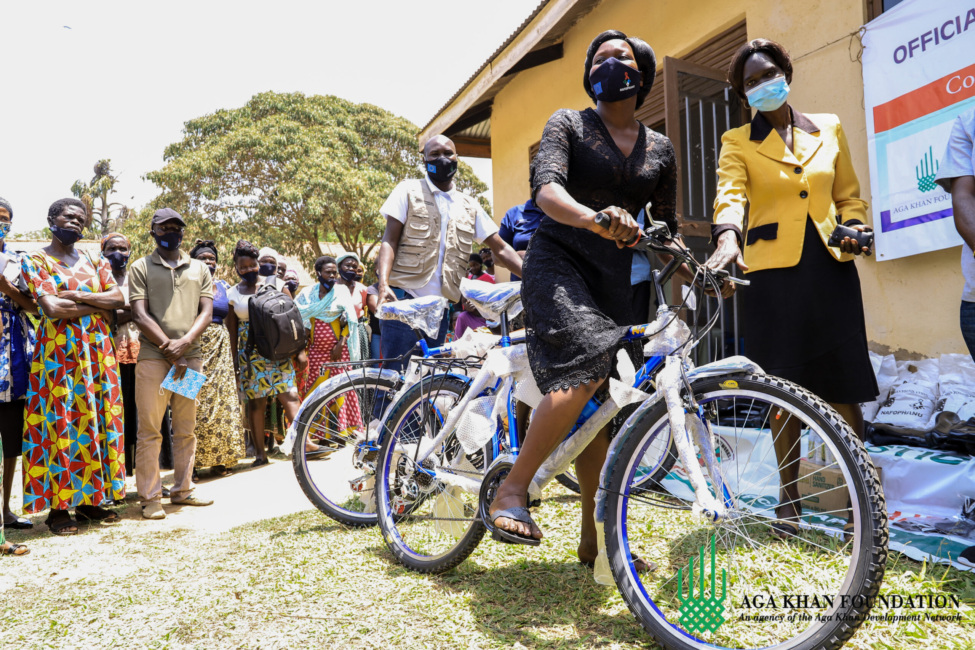
In Uganda, community health workers received bikes so that they could reach their patients living with HIV quickly and safely.
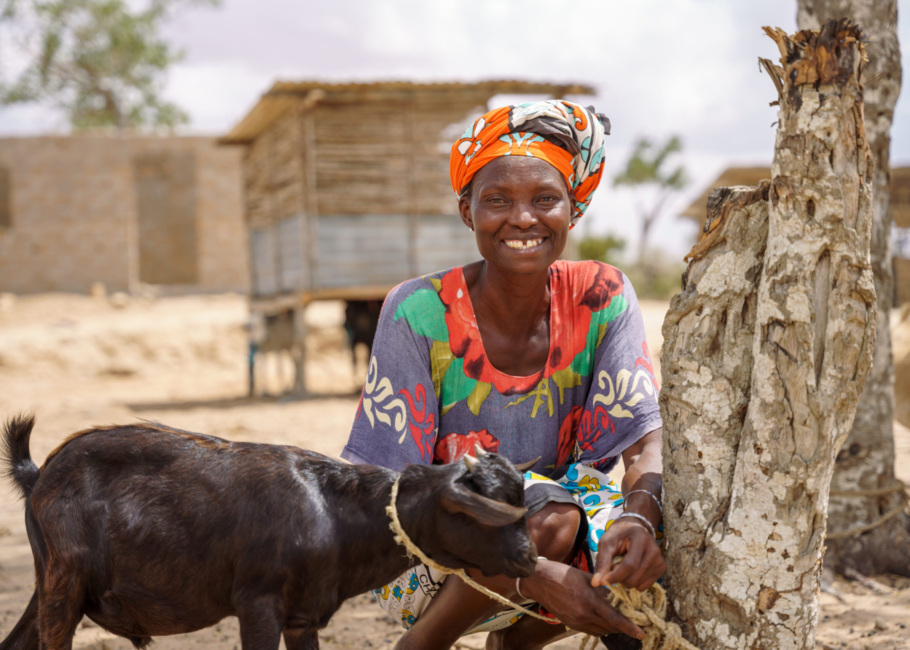
Through RRFs, community members like Mary have been able to rebuild their livelihoods.
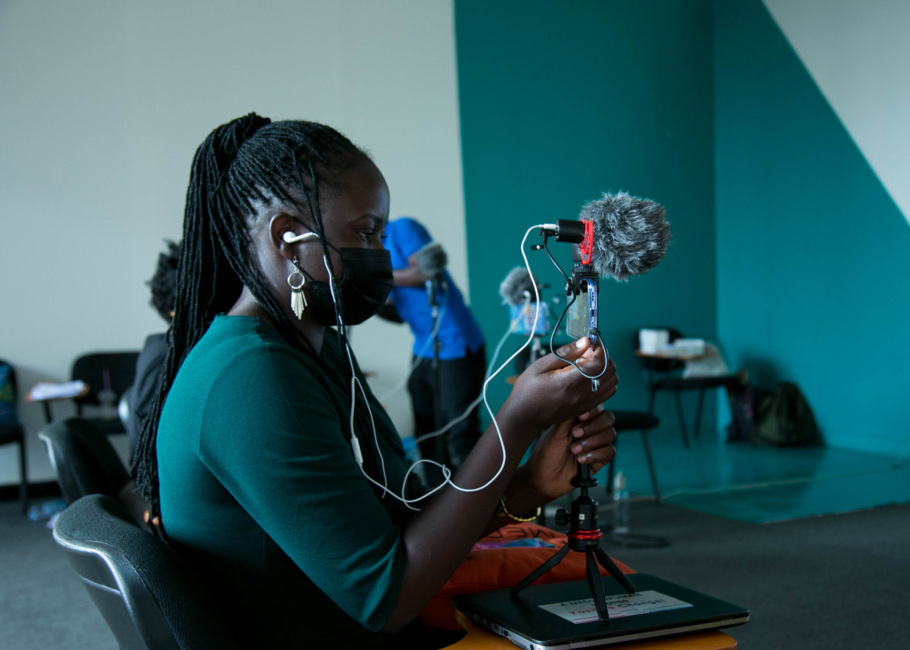
Young journalists from across the region honed their skills to tell stories of hope.
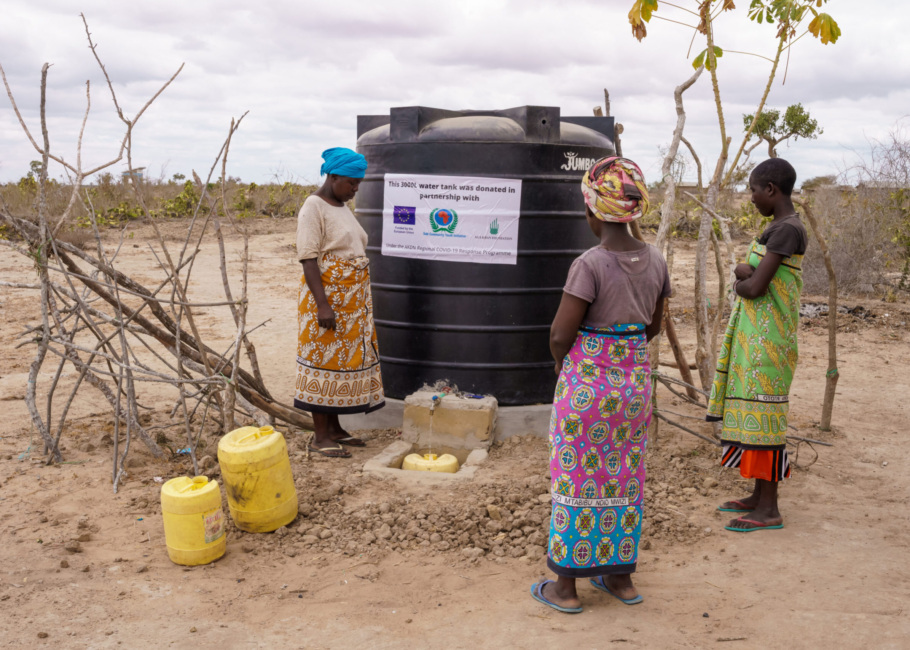
RRFs were used to purchase items that would support entire communities, like this water tank.
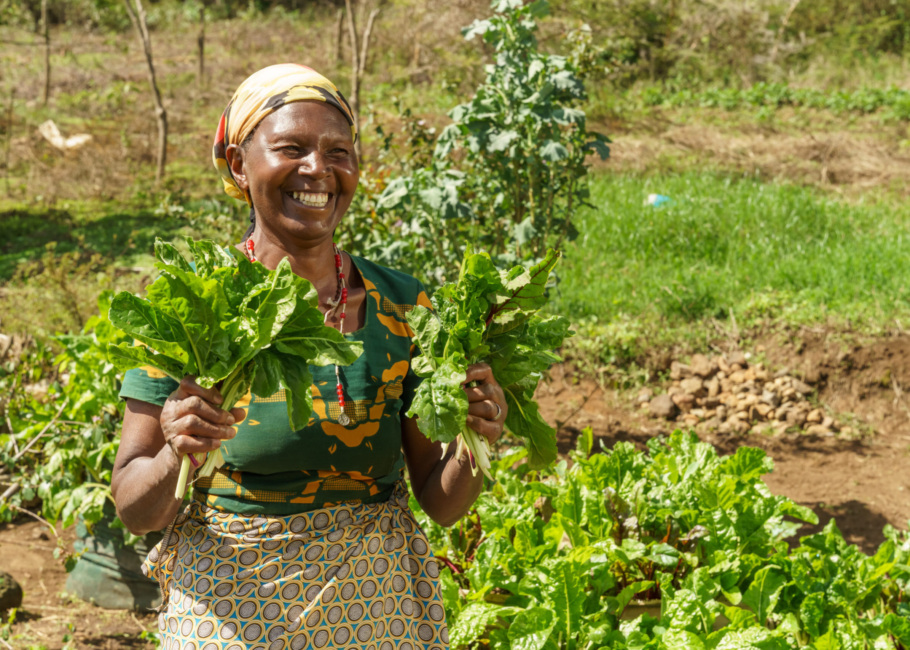
Beatrice has grown her agriculture business using RRFs.
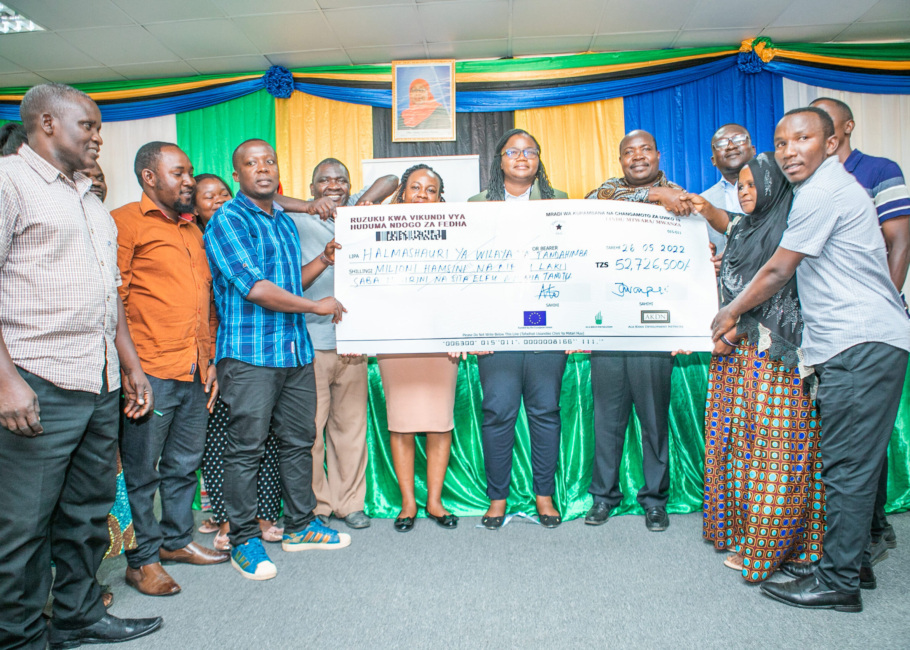
An RRF handover ceremony in Mwanza, Tanzania.
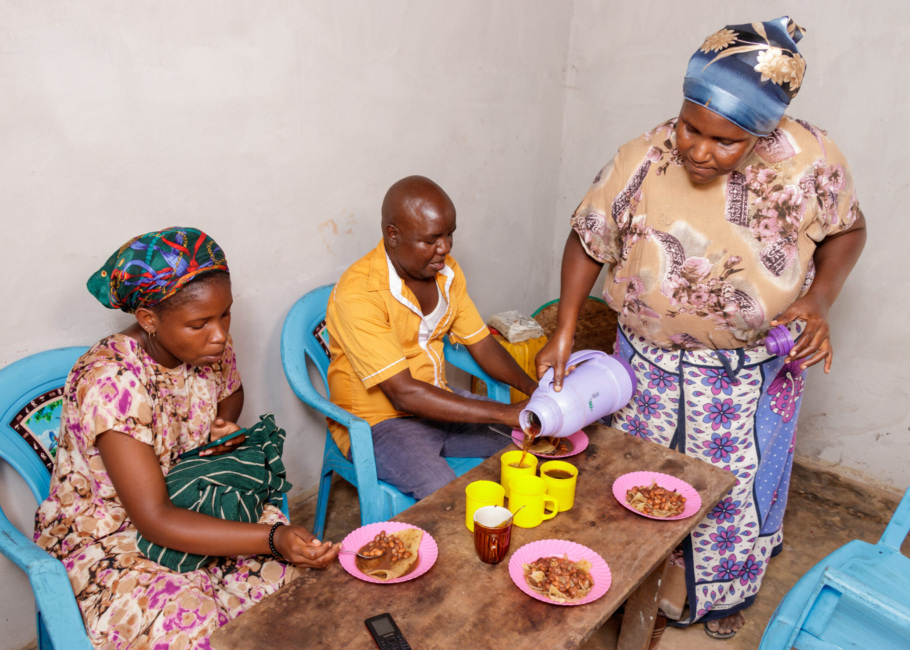
Communities came together during the pandemic to support one another.
/7

Pillar two: Strengthening health systems
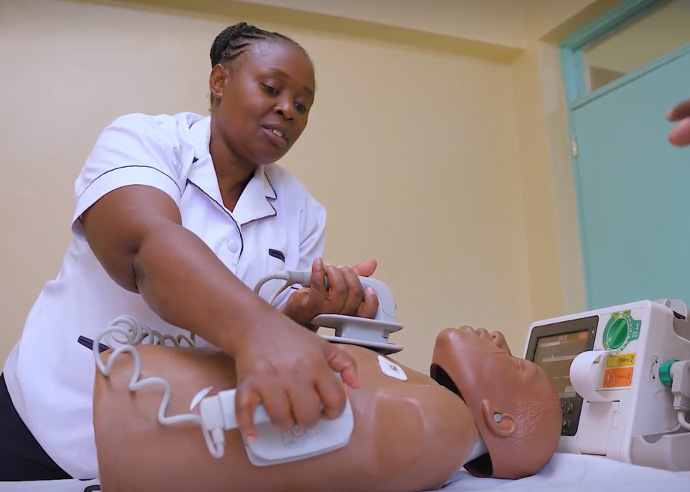
1,773
health workers trained
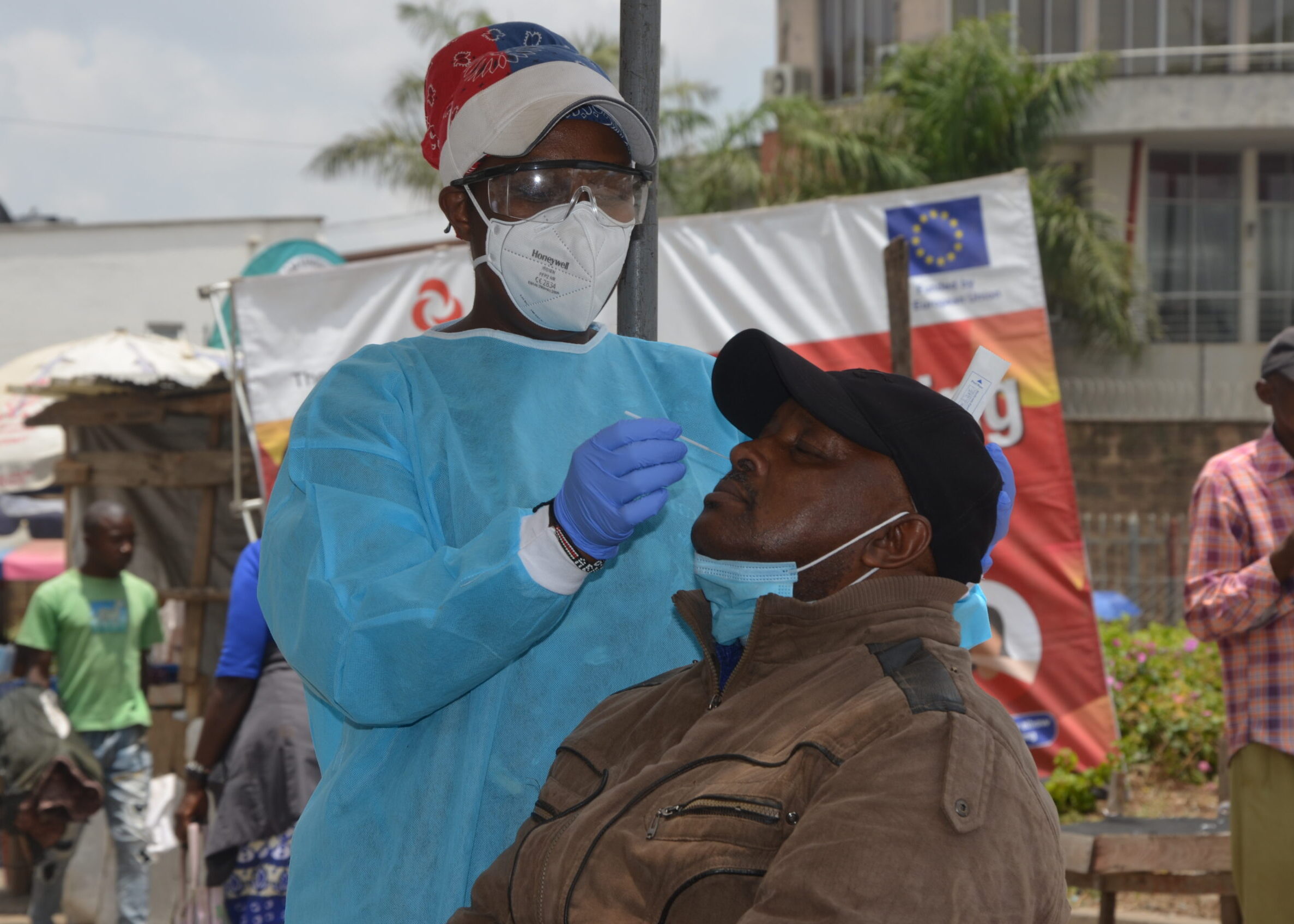
14,072
COVID-19 tests taken
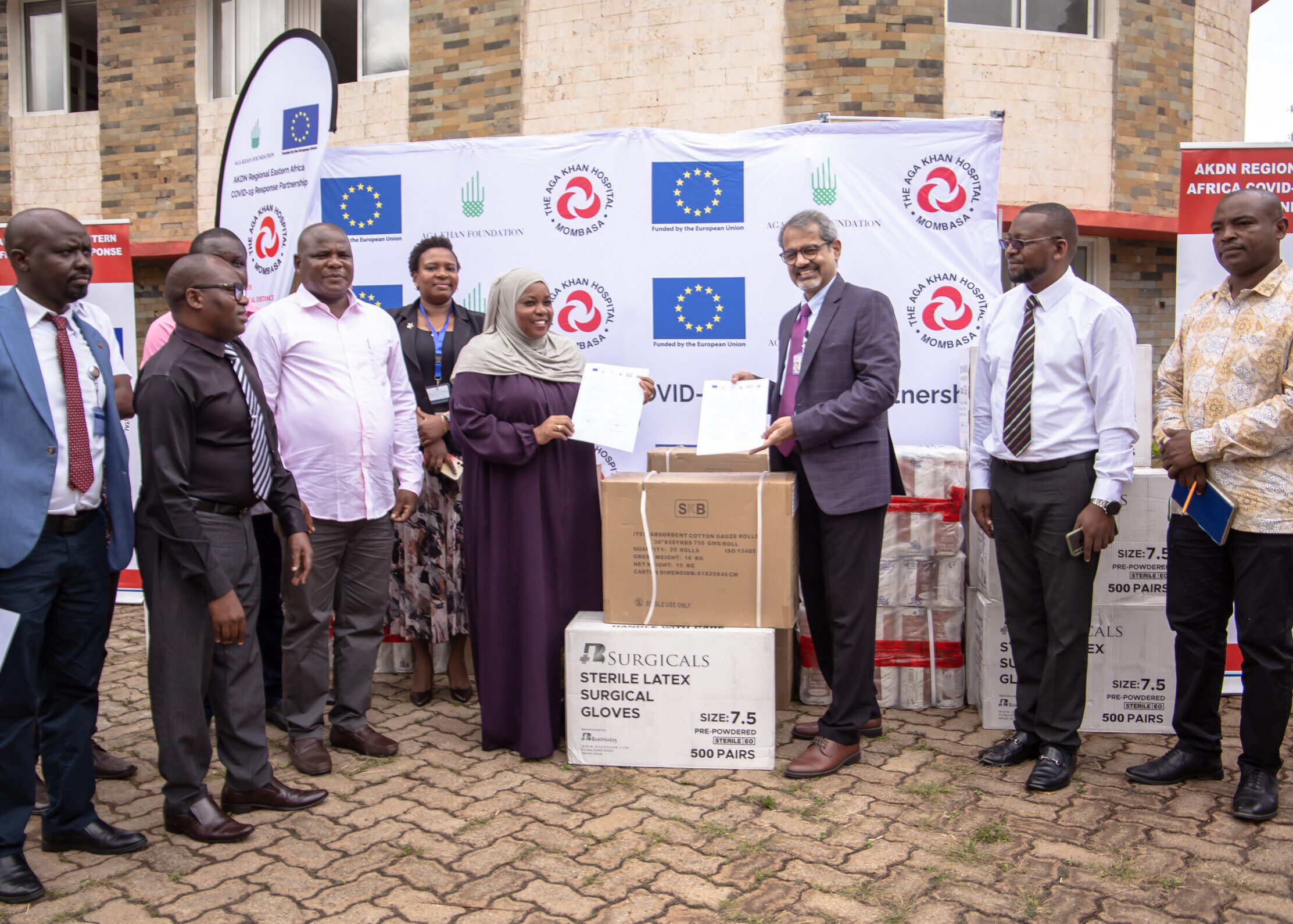
25
healthcare institutions supported
Widespread COVID-19 awareness and testing
When the programme began, COVID-19 was spreading fast throughout the region. Misinformation was rife, and there was a degree of scepticism amongst communities that had limited access to accurate public health messaging. Throughout the programme, AKF and AKHS reached more than 10 million people with up-to-date messaging through national and regional media including Citizen TV, Kenya’s top television channel.
AKHS also worked to expand testing capacity and improve COVID-19 tracing systems, conducting more than 14,000 COVID-19 tests within low-income communities. In Nairobi’s Mukuru Kwa Njenga informal settlement, which has more than 700,000 residents, AKHS established pop up testing clinics on the roadside so that passers-by could see that taking a test was safe, quick, and painless.
We do around 100 tests each day. At first people were scared, they thought that the test would really hurt, but since we’ve been here, they’ve realised it’s not that bad. People are even excited to get their vaccines now.Penina, health worker taking tests in Mukuru Kwa Njenga
Bolstering healthcare institutions
The pace of the COVID-19 pandemic took its toll on health systems globally, and many lacked the infrastructure to withstand the influx of patients. Eastern Africa was no different, and despite fewer recorded cases than other parts of the continent, the actual number of people requiring medical care was at unprecedented levels.
Working in partnership with government health facilities, from large hospitals to small community health clinics, AKF and AKHS supplied personal protective equipment (PPE), COVID-19 testing kits, intensive care equipment and medical goods, as well as improved existing infrastructure, including digital health platforms. In Dar es Salaam, Tanzania, a defunct hospital ward was renovated at the Amana Referral Hospital (photos below). The High Dependency Unit now has a 40-bed capacity and became a key facility for treating severe cases of COVID-19 in the area. In Mombasa, Kenya, the Mtwapa Health Centre was able to install a new A&E department, and staff were trained in emergency care.
Training healthcare professionals
In addition to requiring new equipment and infrastructure to manage the pandemic, healthcare professionals across the world had to learn new ways of working. AKF and AKHS trained more than 1,700 medical practitioners across the region; much of the training was delivered through digital platforms, making it easier to cascade learnings to other staff, including outreach workers in remote communities.
At Kisumu County Hospital in western Kenya, staff were trained in advanced cardiac life support. Nurse Jane Akinyi said, “We have saved lives through this training. Now, I want to start a skills lab so that more of us can learn and refresh this critical knowledge.” As Jane suggests, what she and her colleagues learnt has reached far beyond the immediate needs of the pandemic, strengthening their ability to respond to day-to-day emergencies and future health crises.
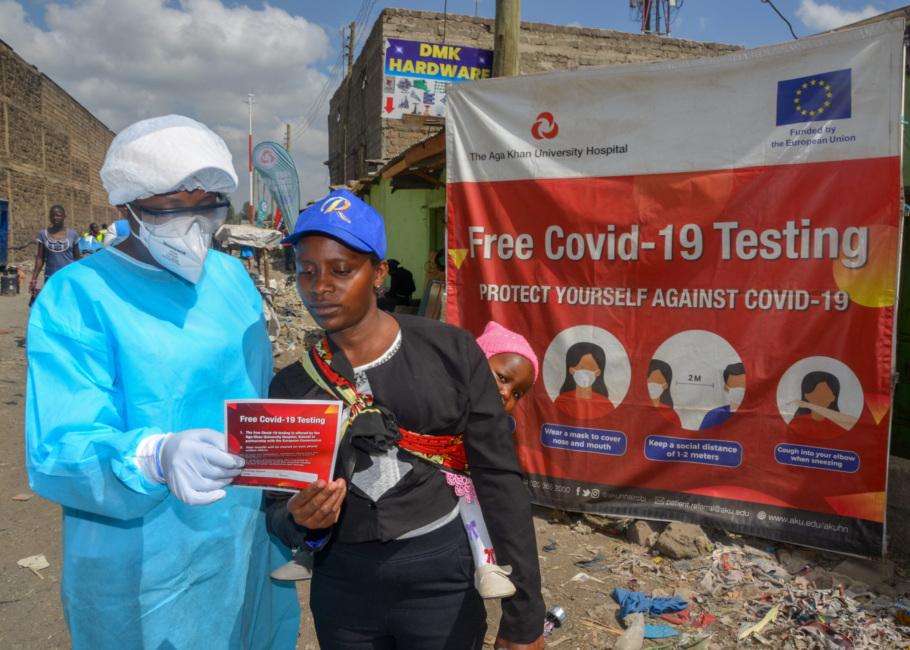
Community health workers promoted the free COVID-19 testing to community members in Mukuru Kwa Njenga.

A nurse and a doctor at the Mtwapa health centre in Mombasa, Kenya.
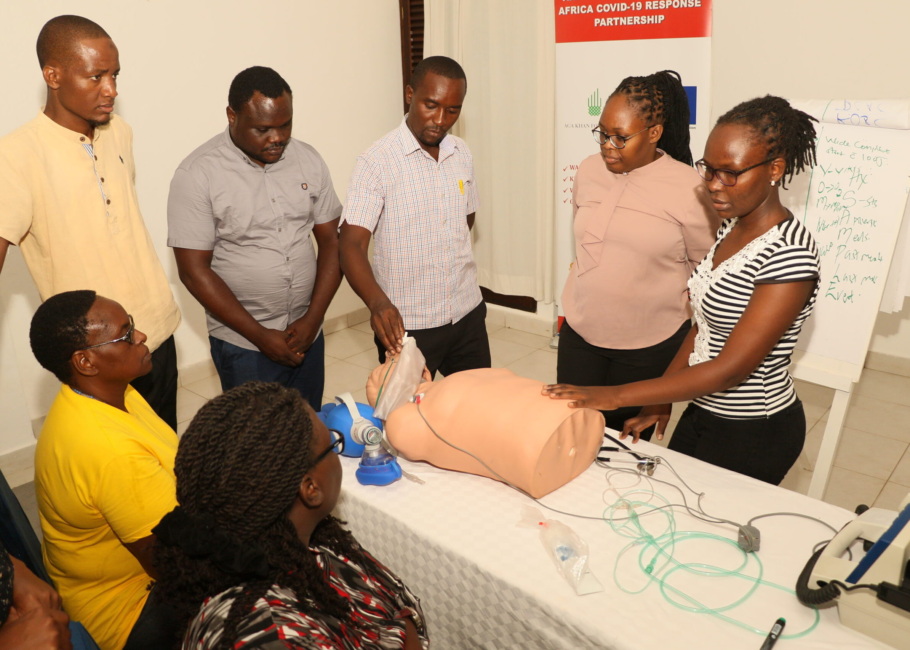
Healthcare professionals receive advanced cardiac life support training.
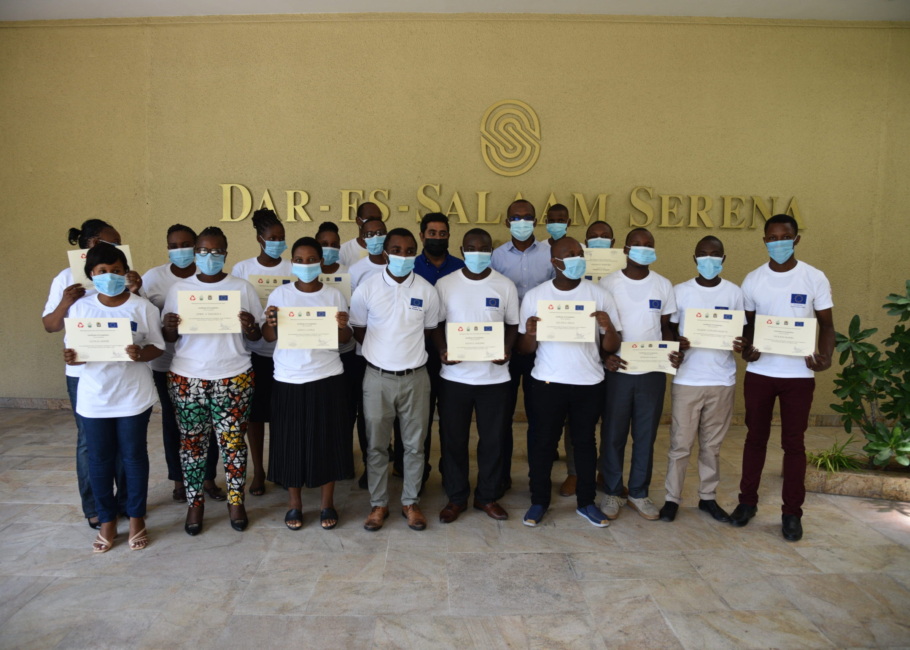
Healthcare professionals receive certificates after training in Dar es Salaam, Tanzania.
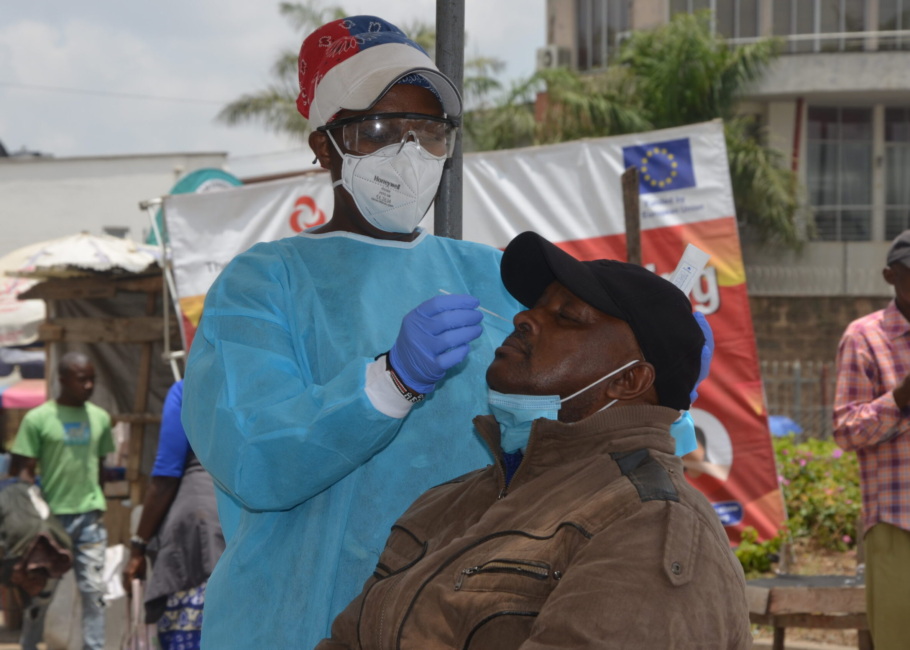
Nurse Penina takes a COVID-19 test in Nairobi’s Mukuru Kwa Njenga informal settlement.
/5
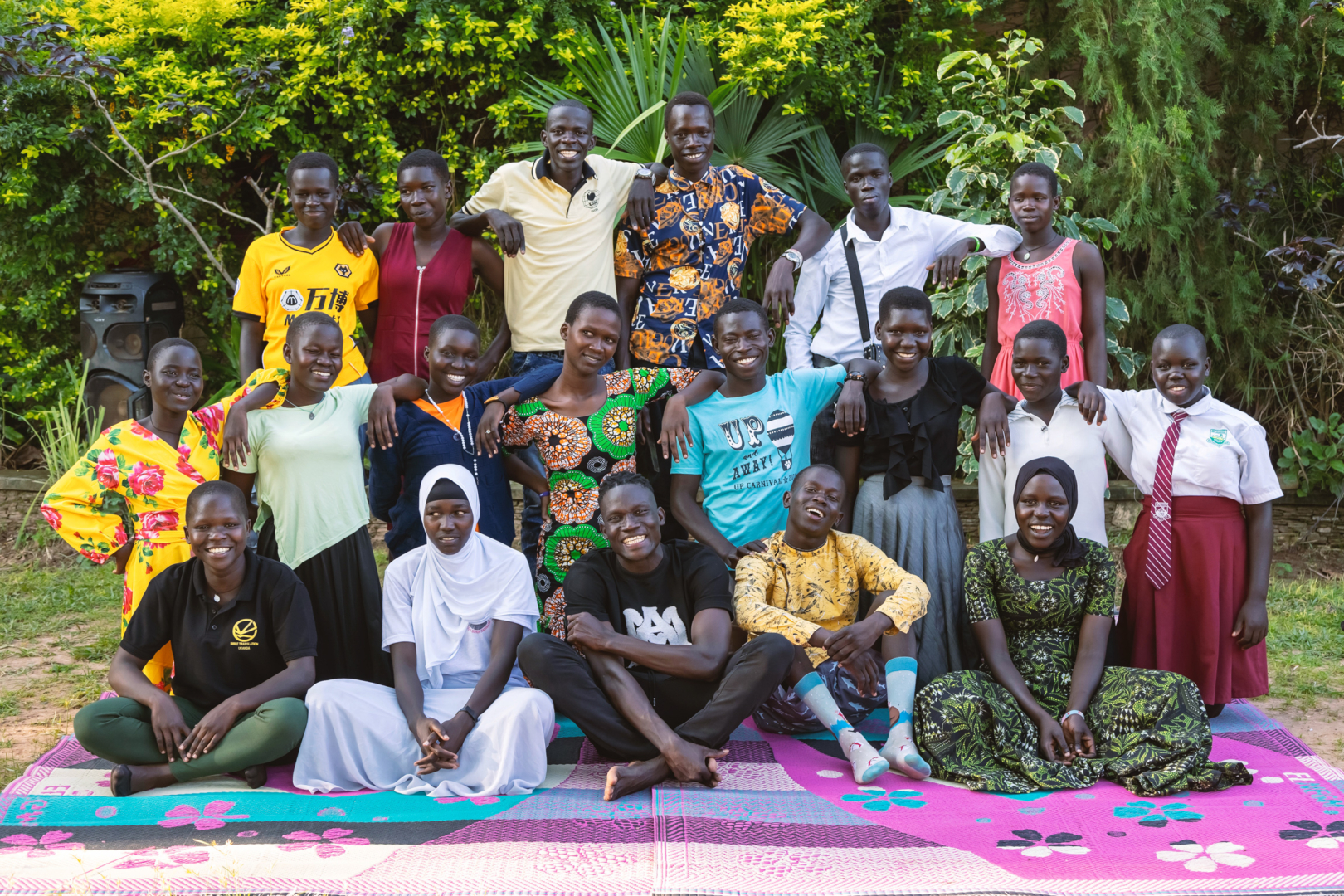
Pillar three: Supporting youth health and livelihoods

9,995
Youth upskilled in entrepreneurship and employability

32,517
Youth accessed sexual and reproductive health support
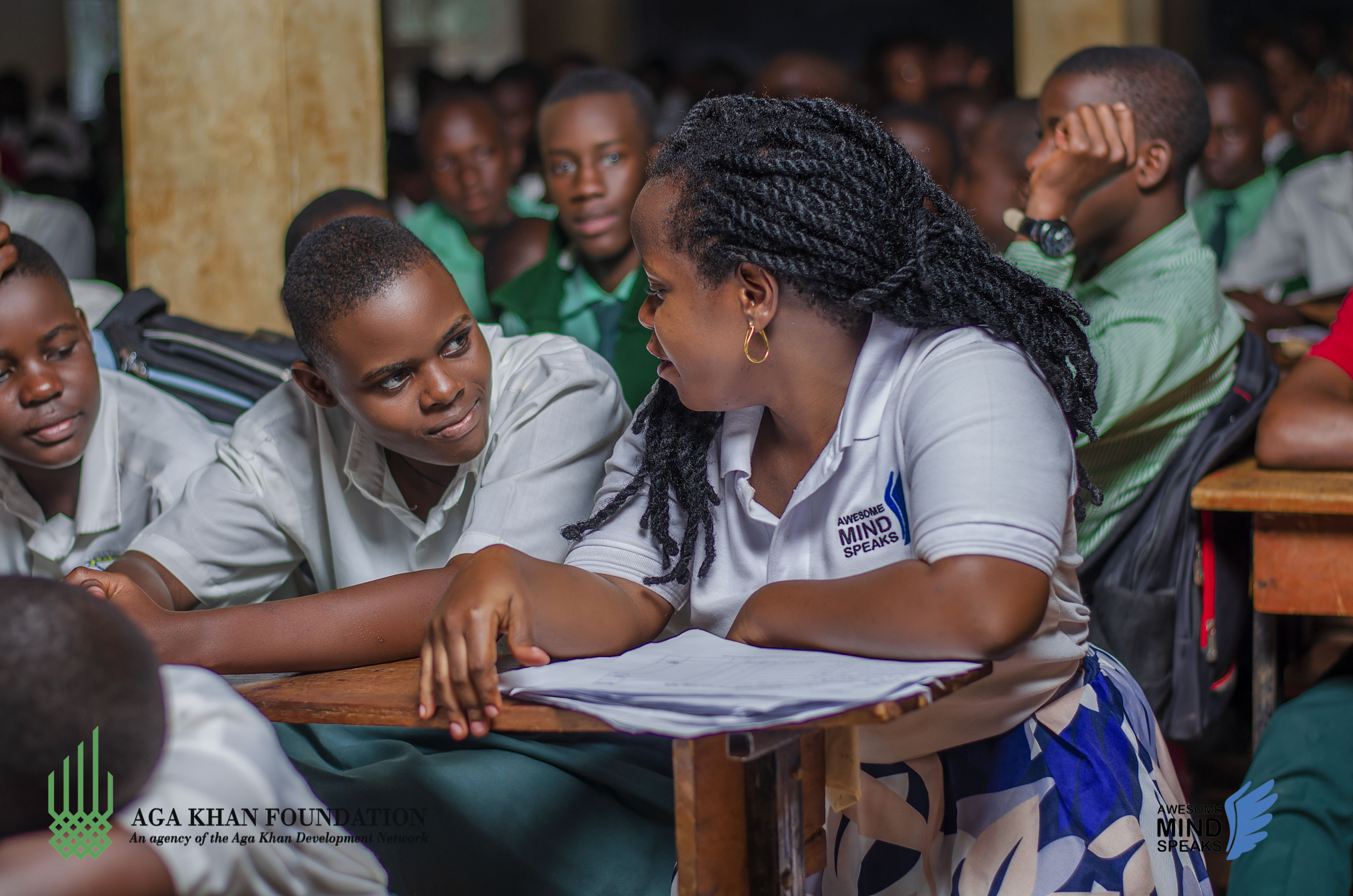
2,828
Youth received mental health training and support
Improving access to sexual and reproductive health services
With the movement restrictions and school lockdowns imposed during the pandemic, it became even more challenging for girls and young women to access sexual and reproductive health rights (SRHR) services.
Through the programme, AKF partnered with Triggerise, a global NGO harnessing the power of tech to connect young people with health services, community networks, and life skills. Together, we scaled Triggerise’s Tiko app across the region, giving youth access to free SRHR products and services. During our programme, more than 32,000 young people used the platform, which has more than two million users worldwide. Young people are at the heart of these efforts; the Tiko platform relies on community mobilisers like Steasy to raise awareness of its offering and ensure it functions effectively for the people it serves.
I am a passionate girls advocate, and I know what girls go through. I have to fight for girls’ rights, because we’ve had cases where girls can’t speak for themselves, and they need someone who can speak for them.Steasy Atieno, Tiko community mobiliser, Kenya
Learn more about the Tiko app in this article.
Empowering young entrepreneurs and enhancing employability
Africa has the youngest population in the world, with 70% of sub-Saharan Africa under the age of 30. This vibrant youth population provides an opportunity for economic growth, especially after the shock of COVID-19, but support is needed to enable young people to realise their full potential.
Through the programme, nearly 10,000 young people were trained in entrepreneurship and employability skills, enabling them to nurture new business ideas, grow existing businesses, or enter the world of work. The training was delivered through local business development service partners with support from youth-led CSOs, and learners have since been able to pass on their knowledge to other youth. In many cases, young entrepreneurs have been able to employ their peers and develop youth skills through paid work, taking local economic growth into their own hands.
Meet Asma and Emmanuel, two young entrepreneurs, below.
Mental health support
AKU’s Institute for Human Development (IHD) led the mental health aspect of the programme, which had two major components: providing mental health support to youth and engaging with schools to raise awareness. In Kenya, IHD partnered with CSOs to deliver a mental health literacy course in 15 schools, reaching 2,828 youth. Following the course, youth demonstrated renewed attitudes towards mental health, and their overall wellbeing showed positive changes, with reduced rates of depression and anxiety.
In collaboration with schools in Nairobi and Mombasa, IHD organised four impactful events to foster discussions around mental health among youth. These events featured talks, counselling support, drama skits, dance competitions, and games. During the programme, IHD also made valuable contributions to the scientific community by publishing research papers on mental health interventions for youth and presenting their work at renowned conferences in Kenya and France.
Explore the publications:

In Tanzania, youth advocates led employability training for other young people.

Seif runs a youth-led CSO in Mombasa, Kenya.

Since her training, Asma now trains other young women in tailoring skills to expand the capacity of her business.
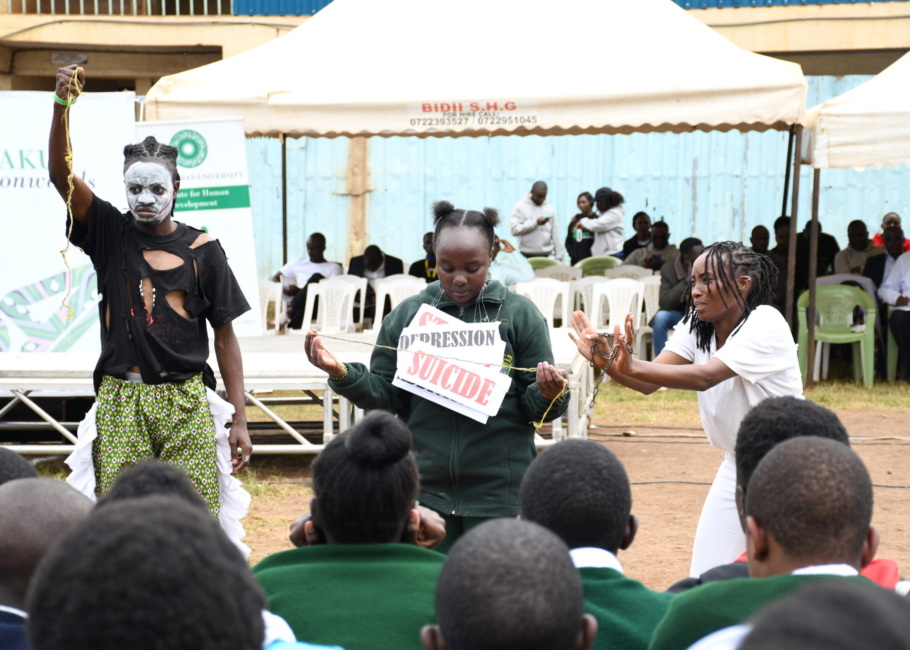
Captivating drama skits were performed during the mental health awareness events.

A group of Tiko community mobilisers in Kisumu, Kenya

Annta runs his own fish and poultry farm in Mtwara, Tanzania.
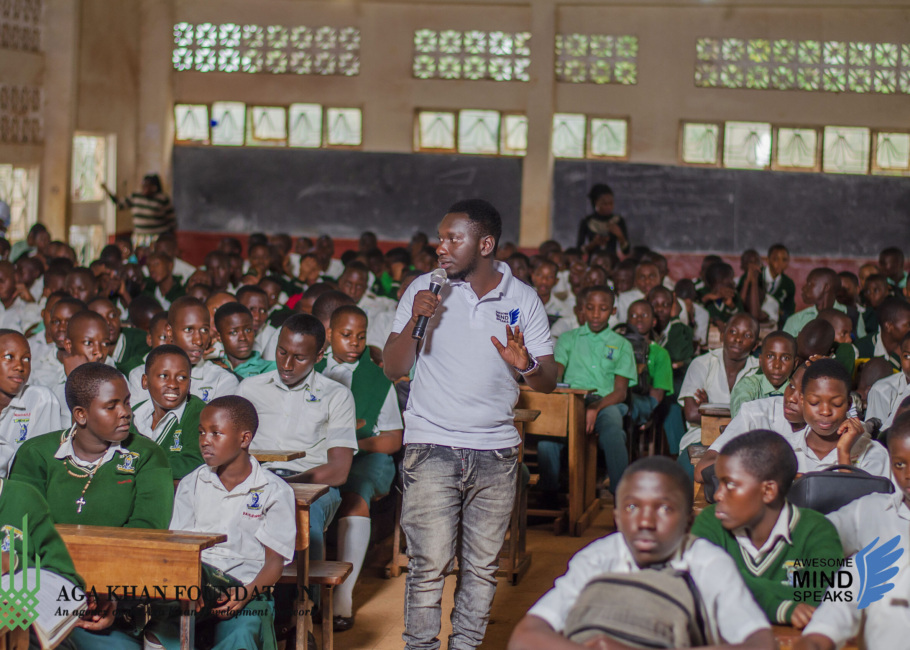
In Uganda, local CSO Awesome Mind Speaks runs a mental health session in a school.
/7
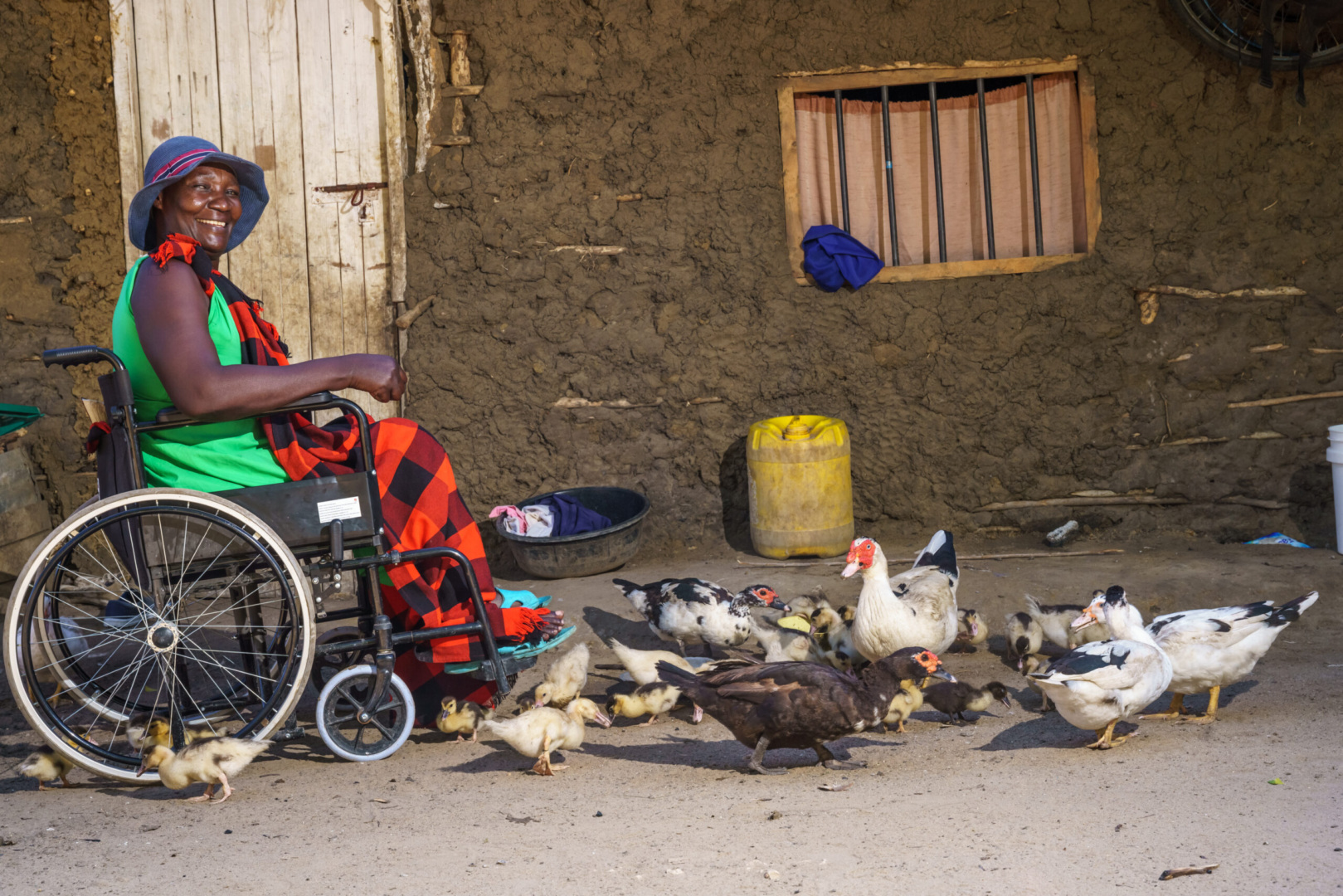
A lasting impact
The AKDN East Africa COVID-19 Response Programme took a holistic approach, nurturing sustainable solutions that would benefit communities long after the pandemic was over. Over the programme’s two-year timeline, the needs of Eastern Africa’s communities shifted, and in turn, AKF and its partners adapted our response to support them.
Together, we focused on enabling communities to rebuild local economies and fortify existing systems against future crises. From community health workers better able to respond to patient emergencies to youth equipped with skills to launch and sustain new businesses, thousands of people across Kenya, Uganda, Mozambique and Tanzania now embody the lasting impact of this programme, leading their communities towards a brighter and more resilient future.
Learn more about the impacts of the programme in this YouTube playlist, featuring individual stories and documentaries.
This is a project funded by the European Union and the Aga Khan Foundation and implemented by agencies of the Aga Khan Development Network. Views and opinions expressed are however those of the author(s) only and do not necessarily reflect those of the European Union. Neither the European Union nor the granting authority can be held responsible for them.
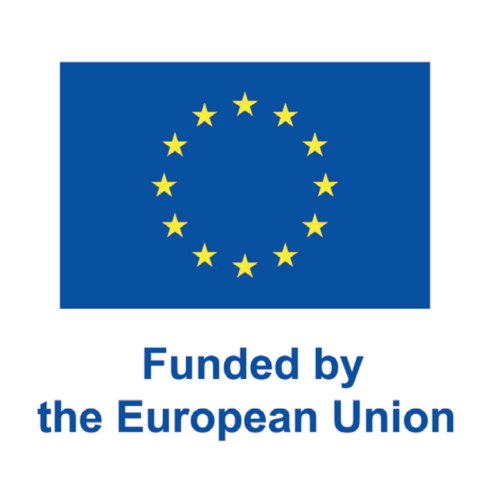
Related News & Stories

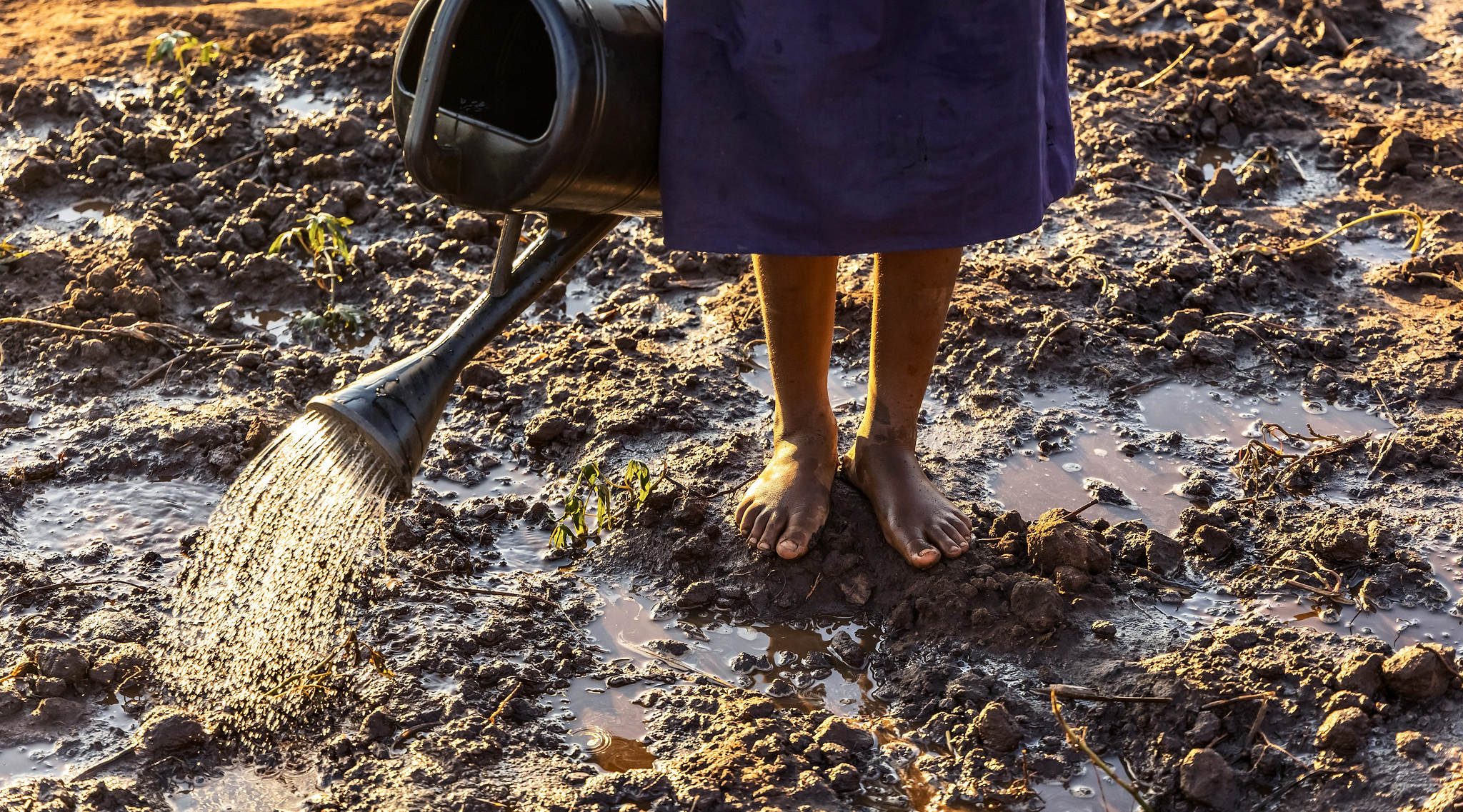
Photo essay: A tale of two school gardens in Tanzania

Meet Linah: Nurturing the community with mental health support
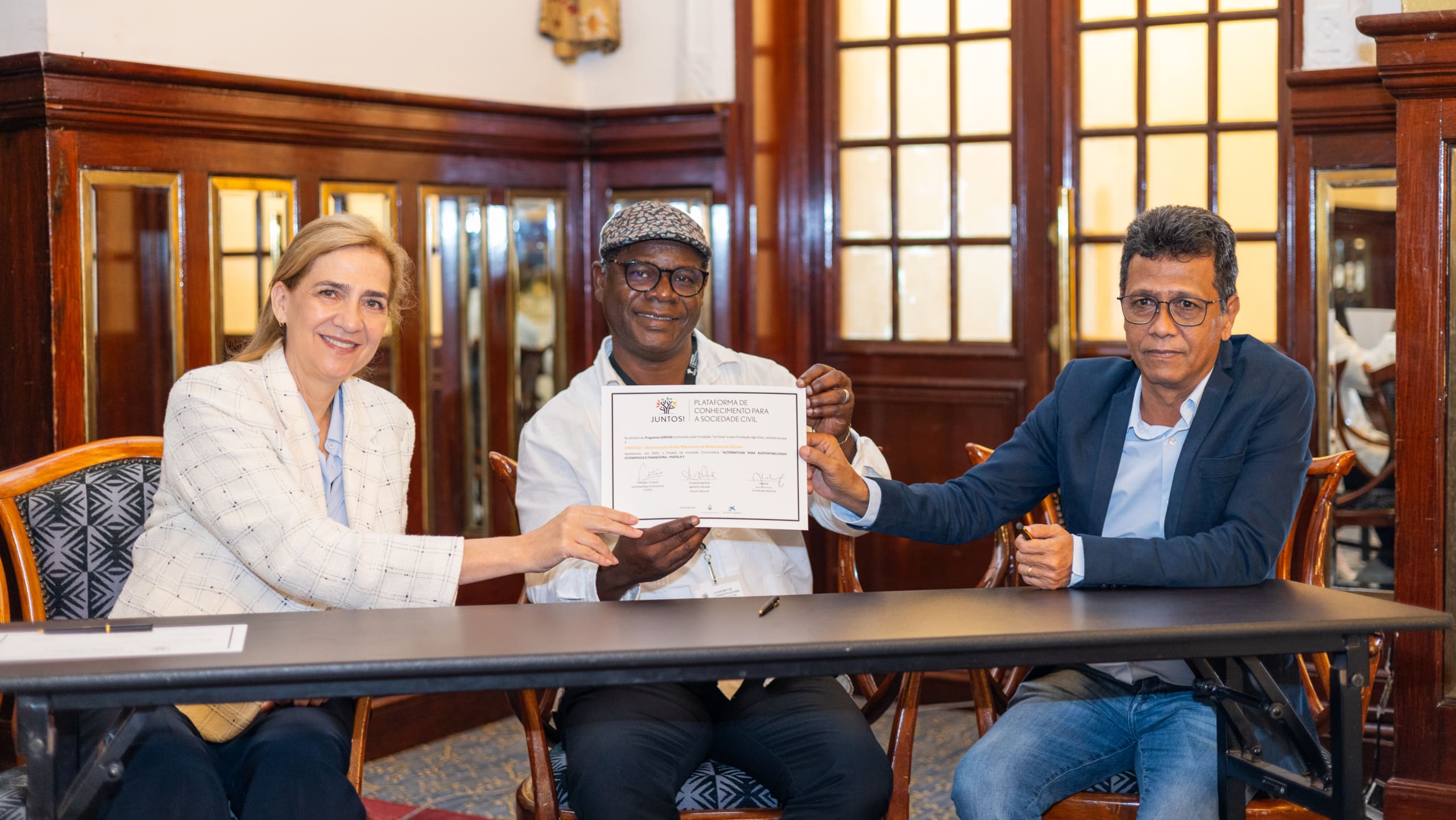
Celebrating community-led innovation: AKF and the ”la Caixa” Foundation award grants to 10 Mozambican CSOs under JUNTOS! initiative
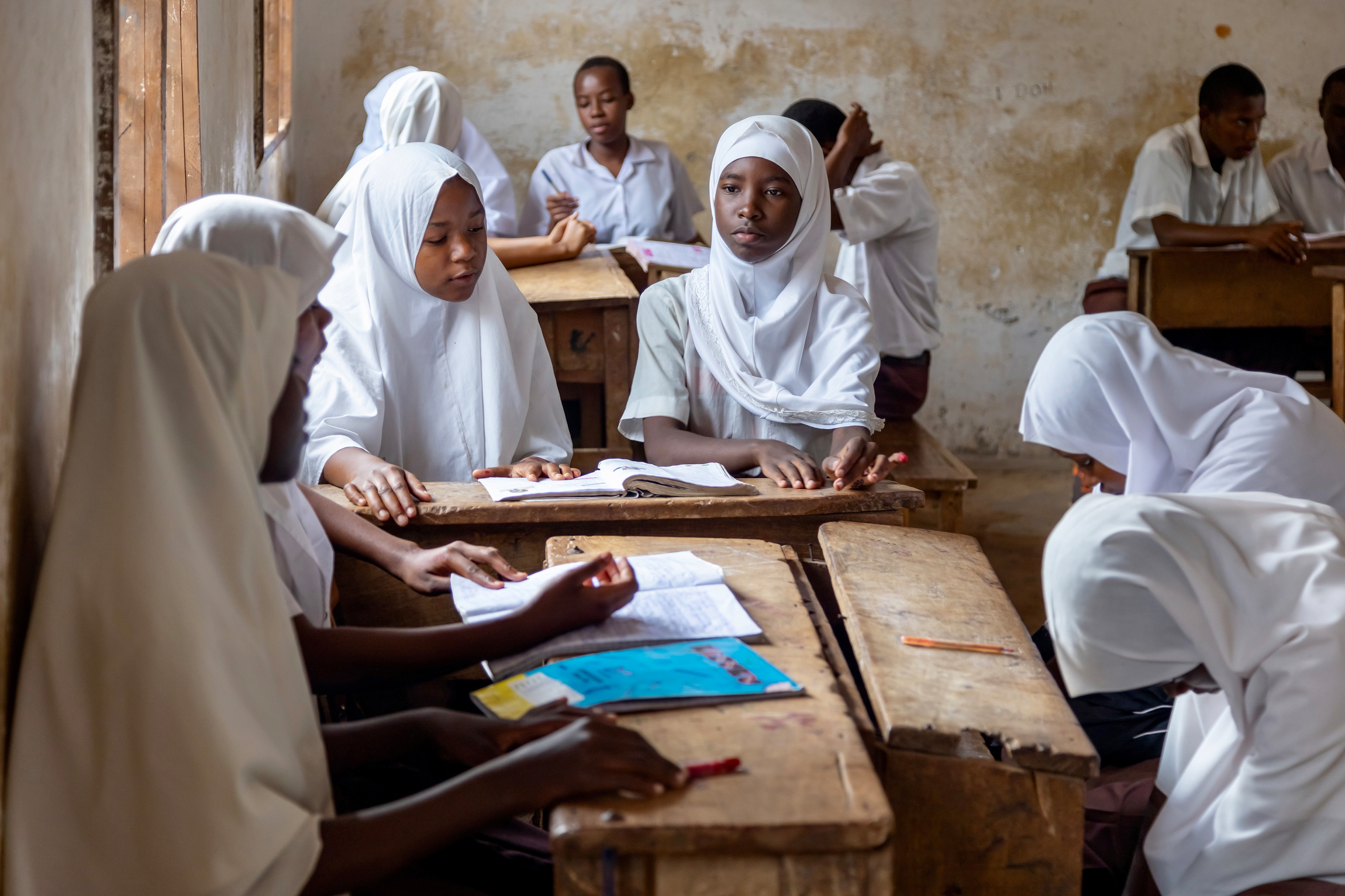
Teaching the watershed generation: How educators in Africa can shape the continent’s future
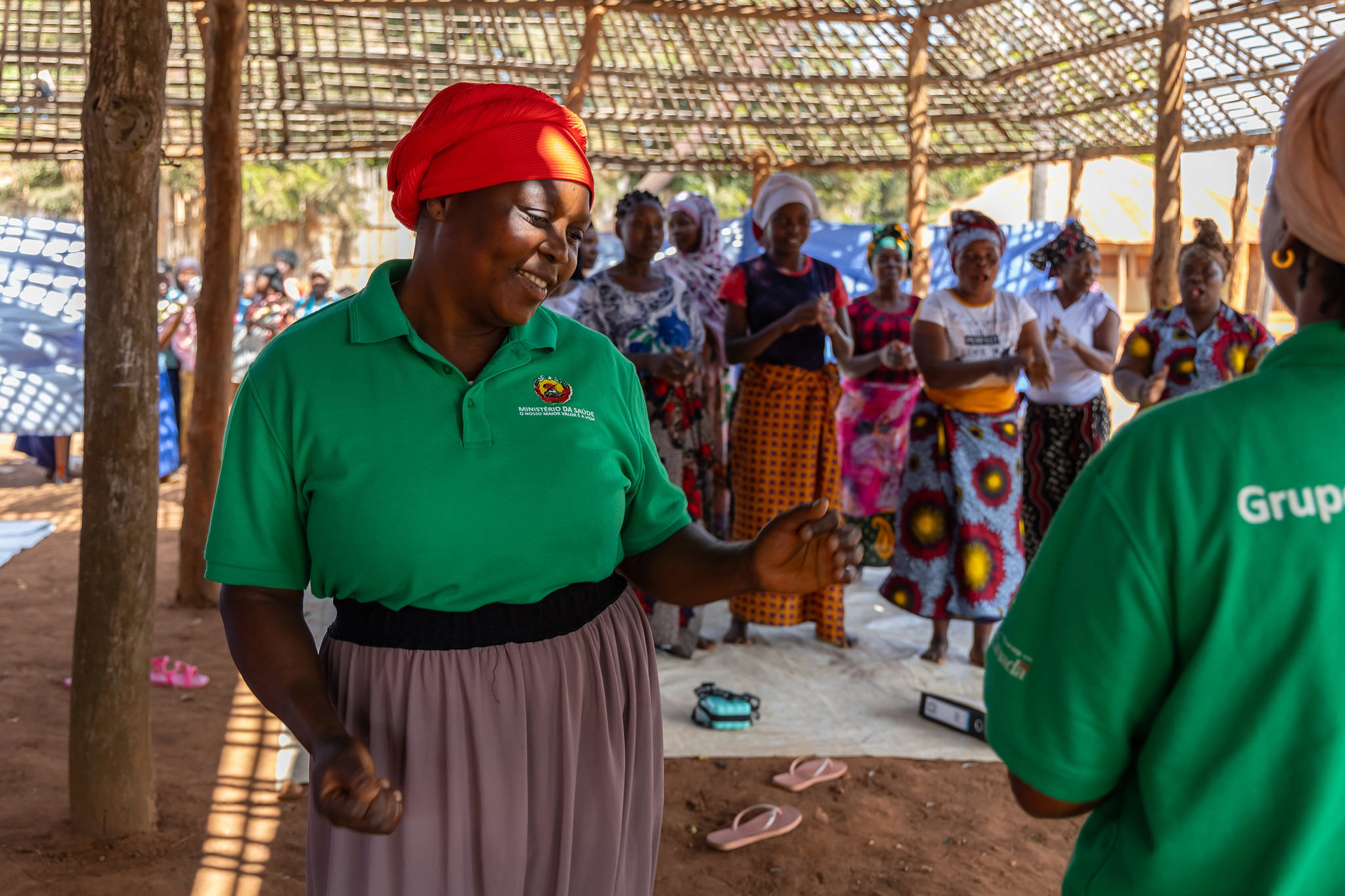
Ripples of change: Women’s change groups in Mozambique
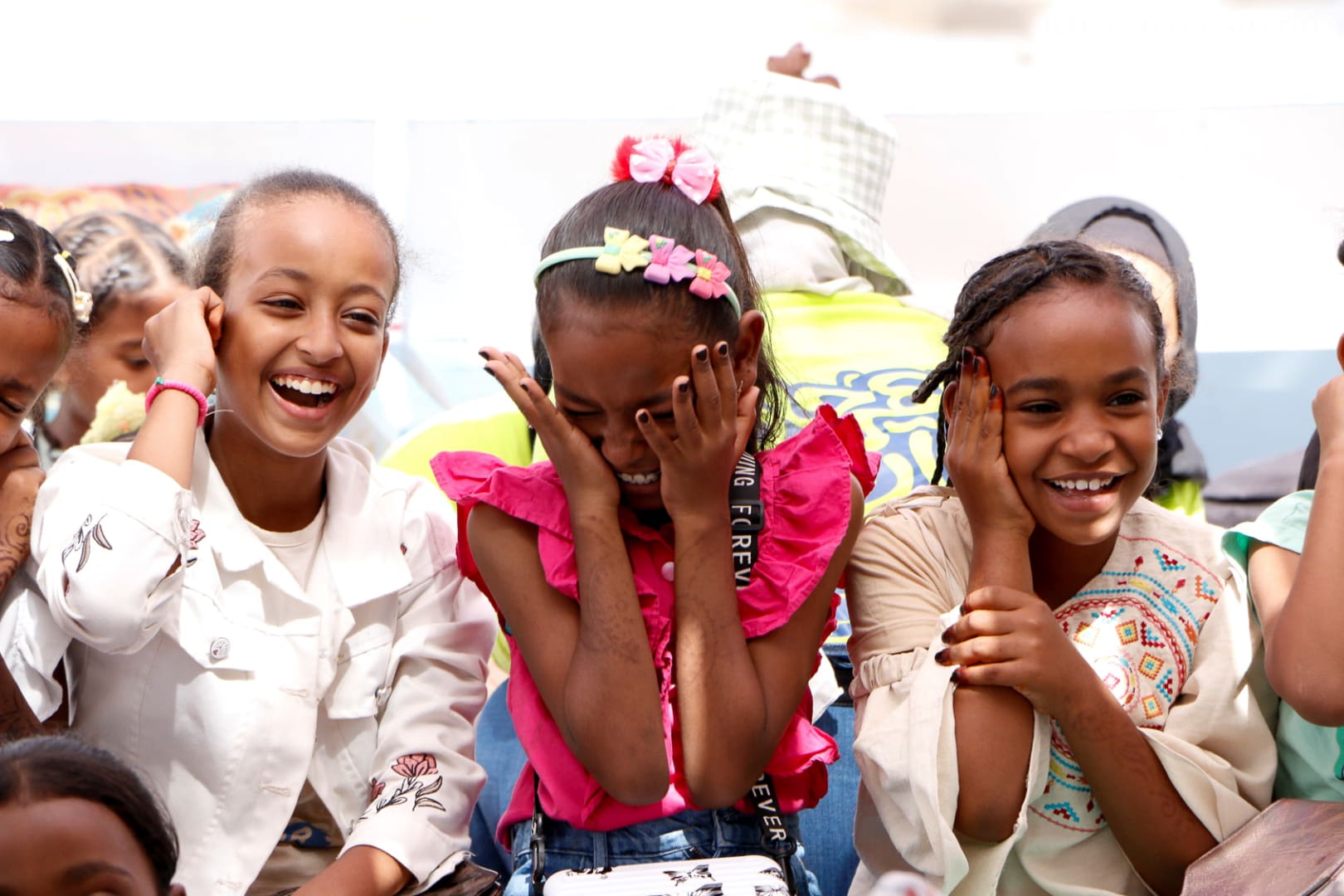
Support our work Your donations are helping us build a future where we all thrive together.